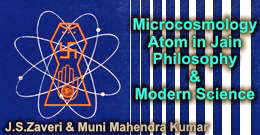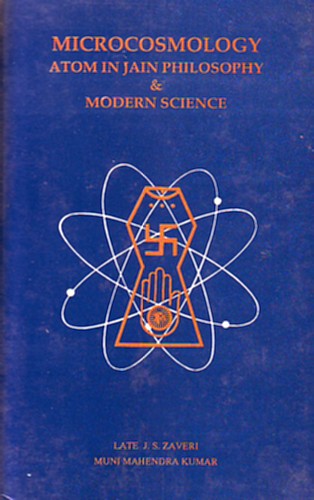
Non-absolutist Jains, as we have seen, endorse neither absolute separateness nor absolute inseparableness - neither absolute unity nor absolute multiplicity - but explain both these apparently opposite extremes as real with reference to different aspects of the same Physical Reality. In the Jain view, the classical notion that the independent 'elementary parts' are the fundamental Reality is as much far from the whole truth as the modern notion that the whole universe is the fundamental Reality. Neither of these rival aspects of the world of experience can be adopted as absolute truth in isolation from the other. Parts are as much real as the whole and neither the whole nor the parts are absolutely independent of the other. We may summarize the non-absolutist Jain position as under:
"Is Reality", ask the Jains, "one or many, unity of whole or multiplicity of parts and if it is both, how are they connected?"
"The world", replies the Jain "must be an orderly whole or system. To be a system at all, it must be the development or expression in detail of a single principle (Reality). Therefore, it cannot be a medley of independent elements, which somehow luckily happen to form a coherent collection. But again, because it is a system, it cannot be a mere unit; it must be the expression of a single principle in and through a multiplicity of parts or constituents. Not only must it be one and many, but it must be many precisely because it is truly one, and one because it is truly manyl. In a complete system, no single part can be missing or be other than it is. Also the number of distinct parts may be actually endless while the law of construction is perfectly determinate. And again the individual elements themselves may turn out to be systems of infinite complexity. Thus, the unity of ultimate principle, in no way, excludes its possession of a wealth of detail infinitely infinite."
- A medley of independent things would not even be really 'many'. For until you can count 'first, second, third.....' you have not your Many. And nothing but the terms of a coherent connected series can be counted. What you can count as many is shown by the very fact of your ability to count it to have a common nature or ground which permits of its orderly arrangements, and thus to be part of one system. Compare Plato, Parmenides, pp. 164, 165.
 Jethalal S. Zaveri
Jethalal S. Zaveri
 Prof. Muni Mahendra Kumar
Prof. Muni Mahendra Kumar

